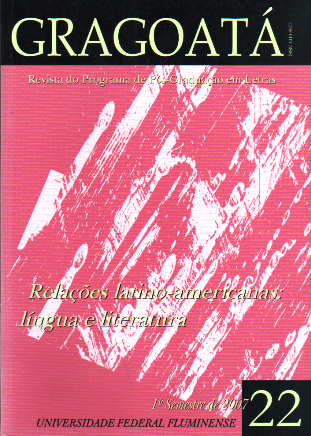'Epistemic Disobedience': the de-colonial option and the meaning of identity in politics
Palavras-chave:
opção descolonial, desobediência epistêmica, desobediência políticaResumo
Desobediência epistêmica: a opção descolonial e o significado de identidade em política
O argumento deste artigo se baseia em duas teses interrelacionadas. A primeira tese, a identidade NA política (melhor do que política de identidade), é um movimento necessário de pensamento e ação no sentido de romper as grades da moderna teoria política (na Europa desde Maquiavel), que é — mesmo que não se perceba — racista e patriarcal por negar o agenciamento político às pessoas classificadas como inferiores (em termos de gênero, raça, sexualidade, etc). A segunda tese se fundamenta no fato de que estas pessoas, consideradas inferiores, tiveram negado o agenciamento epistêmico pela mesma razão. Assim, toda mudança de descolonização política (não-racista, não heterossexualmente patriarcal) deve suscitar uma desobediência política e epistêmica. A desobediência civil pregada por Mahatma Gandi e Martin Luther King Jr. foram de fato grandes mudanças, porém, a desobediência civil sem desobediência epistêmica permanecerá presa em jogos controlados pela teoria política e pela economia política eurocêntricas. As duas teses são os pilares da opção descolonial, que nos permite pensar em termos do diversificado espectro da esquerda marxista e, de outro lado, do diversificado espectro da esquerda descolonial.
---
Artigo em inglês
Downloads
Downloads
Publicado
Edição
Seção
Licença
AUTORIZAÇÃO
Autores que publicam em Gragoatá concordam com os seguintes termos:
Os autores mantêm os direitos e cedem à revista o direito à primeira publicação, simultaneamente submetido a uma licença Creative Commons Atribuição 4.0 Internacional (CC BY 4.0), que permite o compartilhamento por terceiros com a devida menção ao autor e à primeira publicação pela Gragoatá.
Os autores podem entrar em acordos contratuais adicionais e separados para a distribuição não exclusiva da versão publicada da obra (por exemplo, postá-la em um repositório institucional ou publicá-la em um livro), com o reconhecimento de sua publicação inicial na Gragoatá.
A Gragoatá utiliza uma Licença Creative Commons - Atribuição CC BY 4.0 Internacional.











